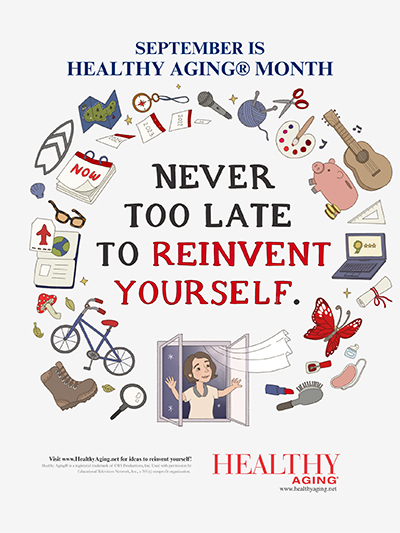
Photo: Unsplash
Pet owners already know this: pets make us happy! Share your pet photos with Healthy Aging’s Facebook Page!
For those of you who do not have pets, you might be interested in how pets are important to your health.
Research now backs up why these bundles of joy make us smile and feel good.
“Some research studies have found that people who have a pet have healthier hearts, stay home sick less often, make fewer visits to the doctor, get more exercise, and are less depressed,” according to the National Center for Health Research (NCHR). “Pets may also have a significant impact on allergies, asthma, social support, and social interactions with other people.”

Unsplash, Octavio Fassati
A recent poll conducted by the University of Michigan showed:
• More than half of older adults (55%) reported having a pet.
• Among pet owners, the majority (68%) had dogs, 48% had cats, and 16% had a small pet such as a bird, fish, or hamster.
• More than half of pet owners (55%) reported having multiple pets.
• Adults age 50–64 were more likely than adults age 65–80 to have a pet.
• About half of pet owners (53%) reported that their pets sleep in their bed.
• Pet owners said that their pets help them enjoy life (88%), make them feel loved (86%), reduce stress (79%), provide a sense of purpose (73%), and help them stick to a routine (62%).
• Their pets connect them with other people (65%),
• Pets help them be physically active (64% overall and 78% among dog owners)
• Pets help them cope with physical and emotional symptoms (60%),
• Pets are pain relievers: they help take their mind off pain (34%).

Photo: Barbara Lee Chapman
Pets Help Fight Depression Due to Loss of Spouse
A study reported in the journal Gerontologist showed companion animals may help ward off depression due to the loss of a spouse whether because of divorce or widowhood.
Pets Help Improve Social Wellness
NCHR, a nonprofit, nonpartisan think tank focused on research that can improve the lives of adults and children, also notes: “Among elderly people, pet ownership might also be an important source of social support that enhances well-being. In one study, elderly individuals that had a dog or cat were better able to perform certain physical activities deemed ‘activities of daily living,’ such as the ability to climb stairs; bend, kneel, or stoop; take medication; prepare meals; and bathe and dress oneself.”
 More Ways Pets Help Us Stay Healthy
More Ways Pets Help Us Stay Healthy
Pets can help lower one’s blood pressure, cholesterol levels, and triglyceride levels. They can help people live healthier lives, according to the Centers for Disease Control and Prevention (CDC).
The CDC also reports that pets can help increase opportunities for exercising and outdoor activities. Take a drive through a community in the morning or evening and there are people out walking their dogs on a regular basis.
The National Institutes of Health also reports that dog owners tend to get more exercise and health benefits than those who do not have them. In addition, they found that older adults who lived with dogs appear to have better mobility than those who didn’t have a dog.
Having a pet also reduces feelings of loneliness and increases opportunities for socialization. People often stop to talk to others who have pets and pets are great at keeping people from feeling alone.
There have been several studies conducted that show pets can help those who have chronic illness or are in rehabilitation. A study in the journal Rehabilitation Nursing reported that incorporating animal-assisted therapy in acute rehabilitation settings helps patients obtain greater satisfaction.
A study in the journal Gerontologist, reported that there is bonding that takes place when people walk their dogs and it brings health benefits for the person. They report that those who engage in dog walking have a lower body mass index, few daily living limitations, fewer doctor visits, and get more exercise.
Having a pet can have an influence on how well someone is aging. These are all good reason why if you don’t have a pet, now is the time to add one to your life.











